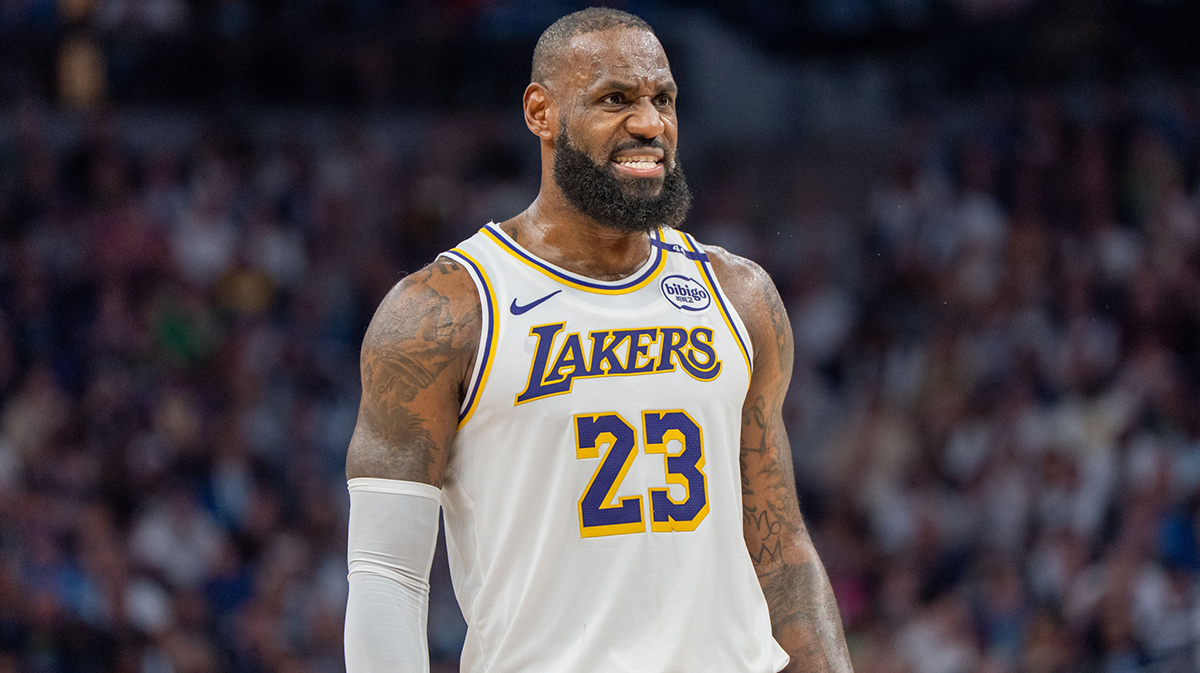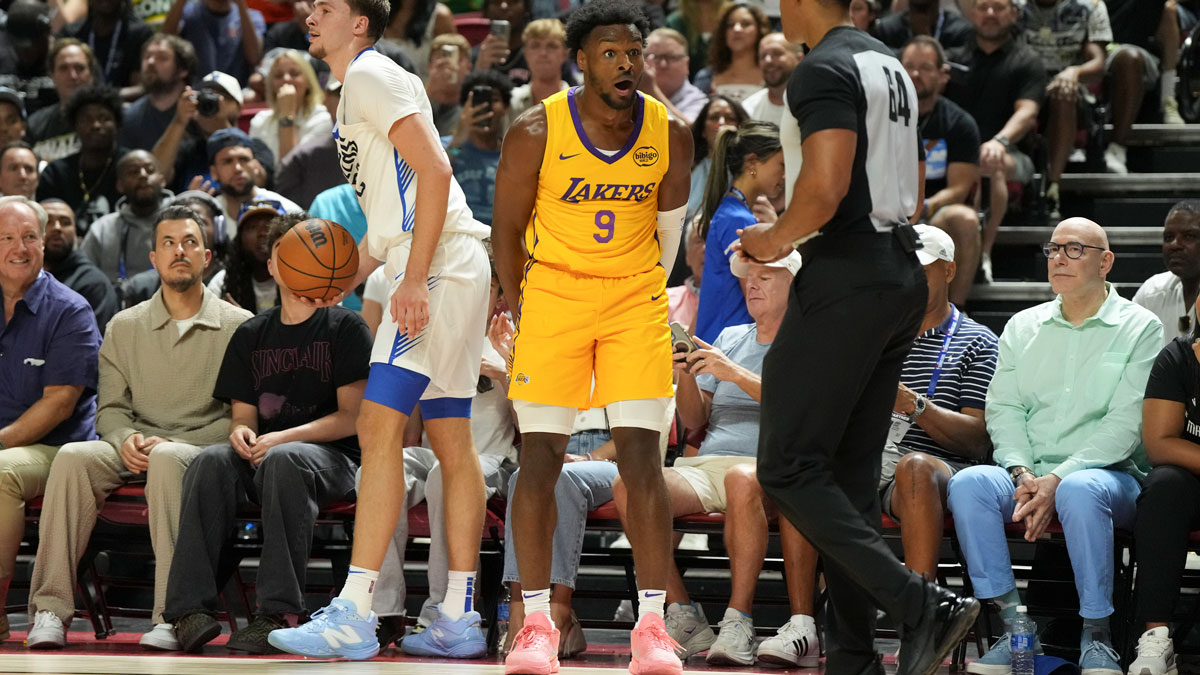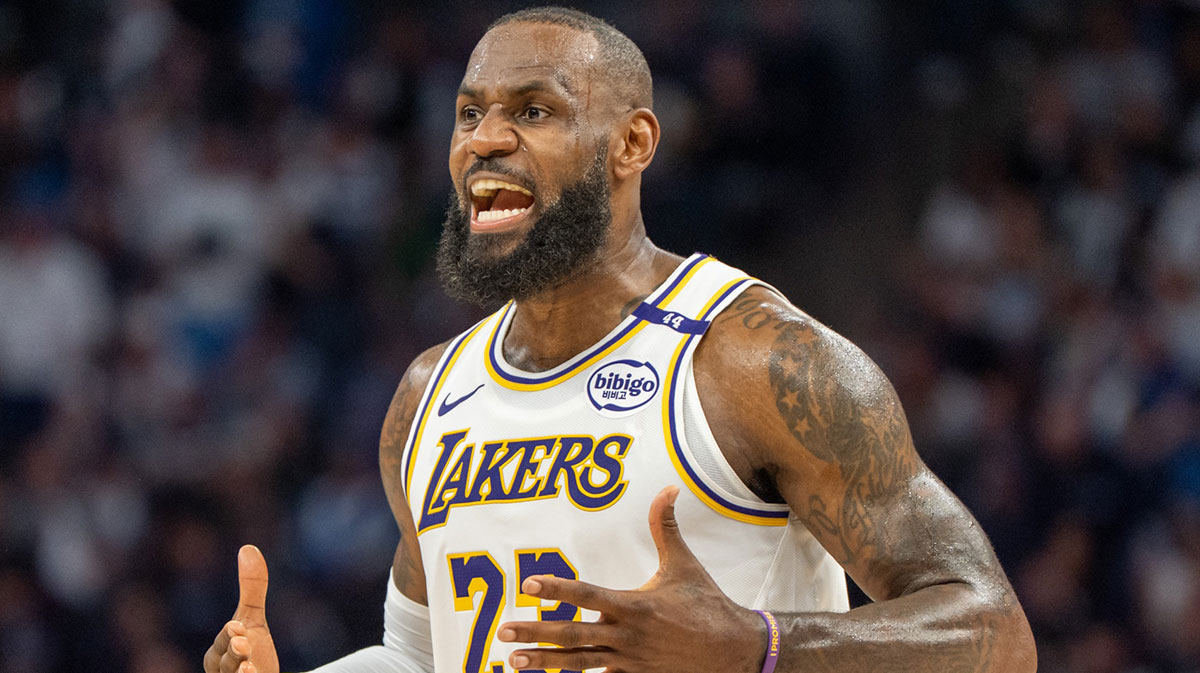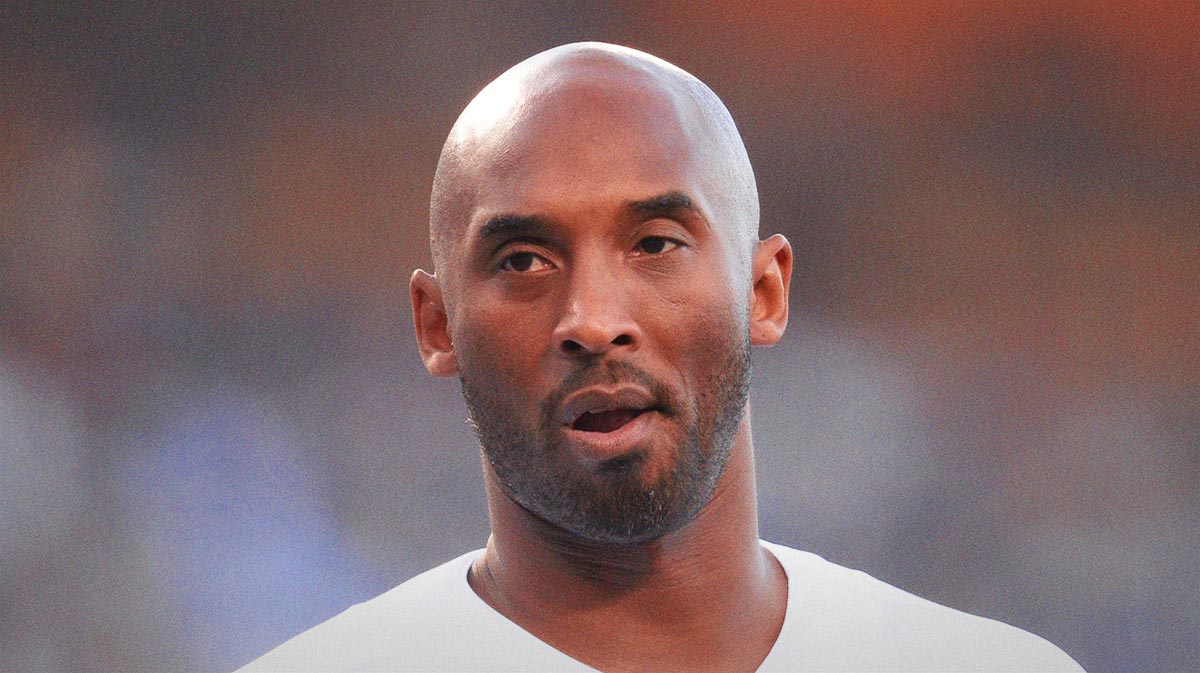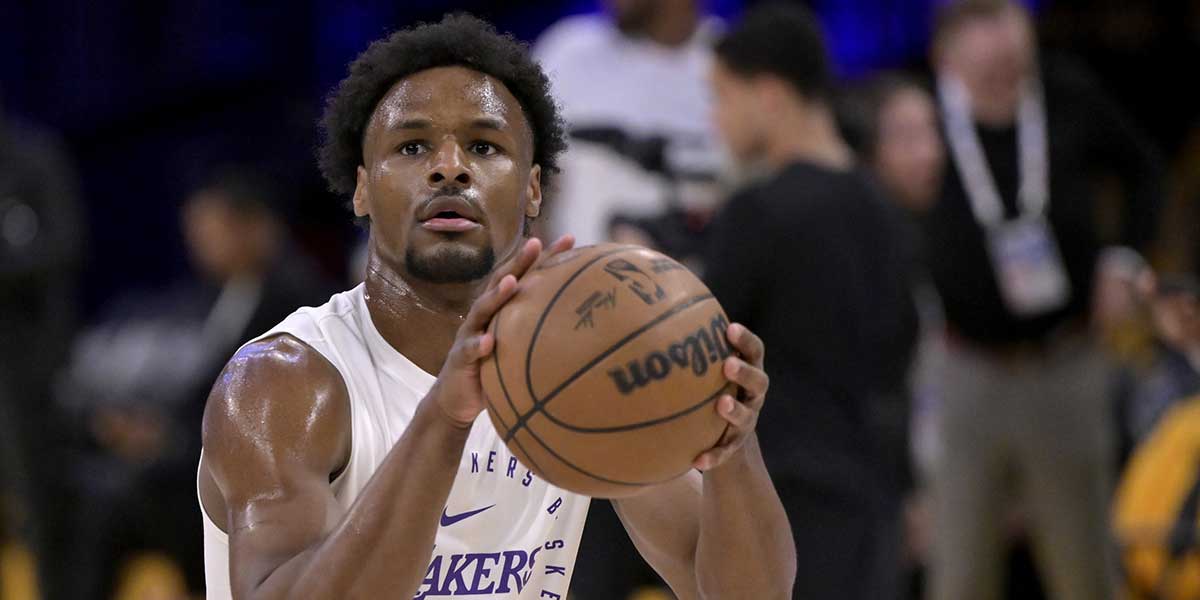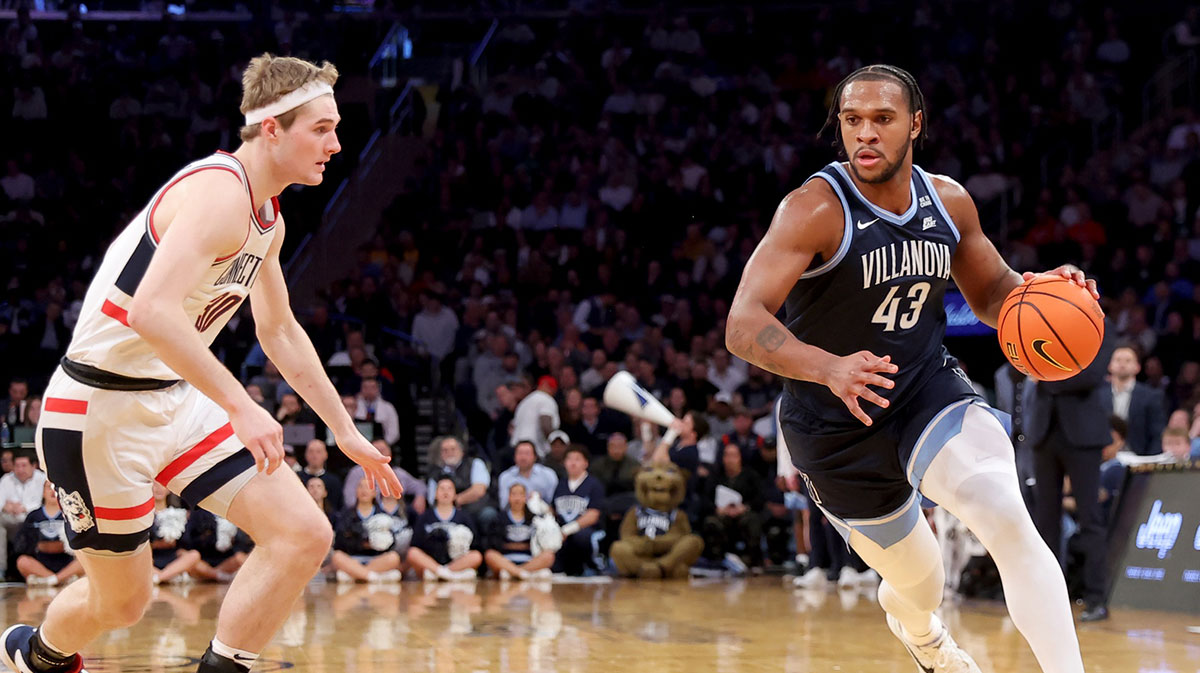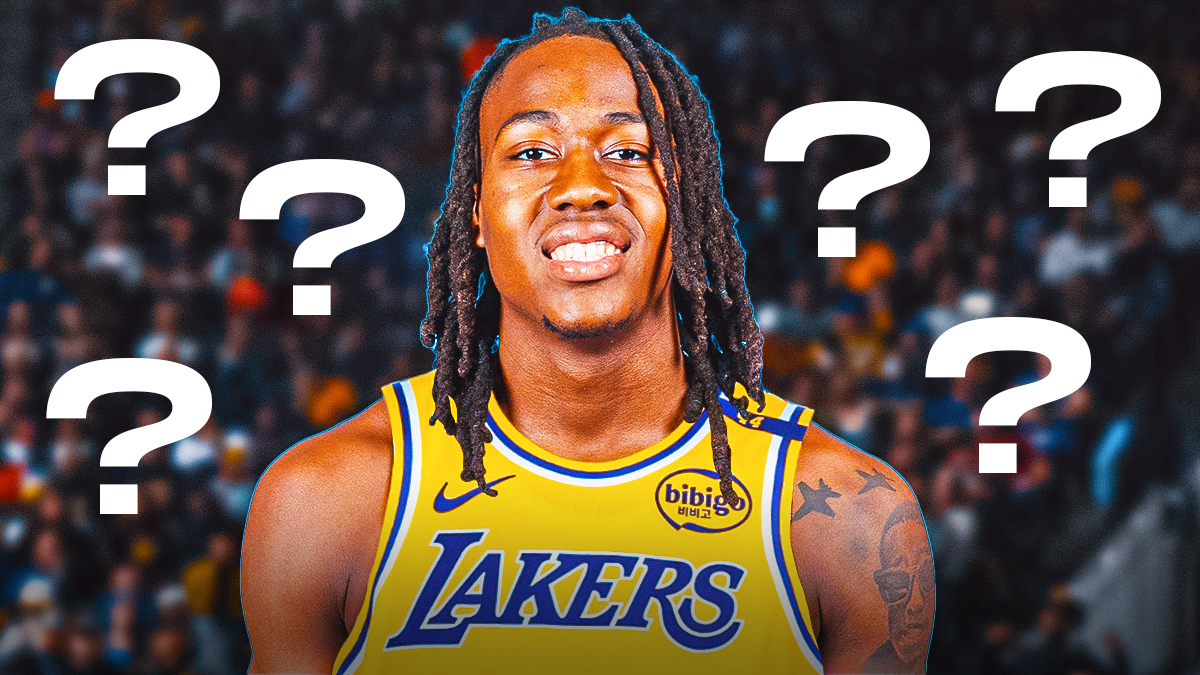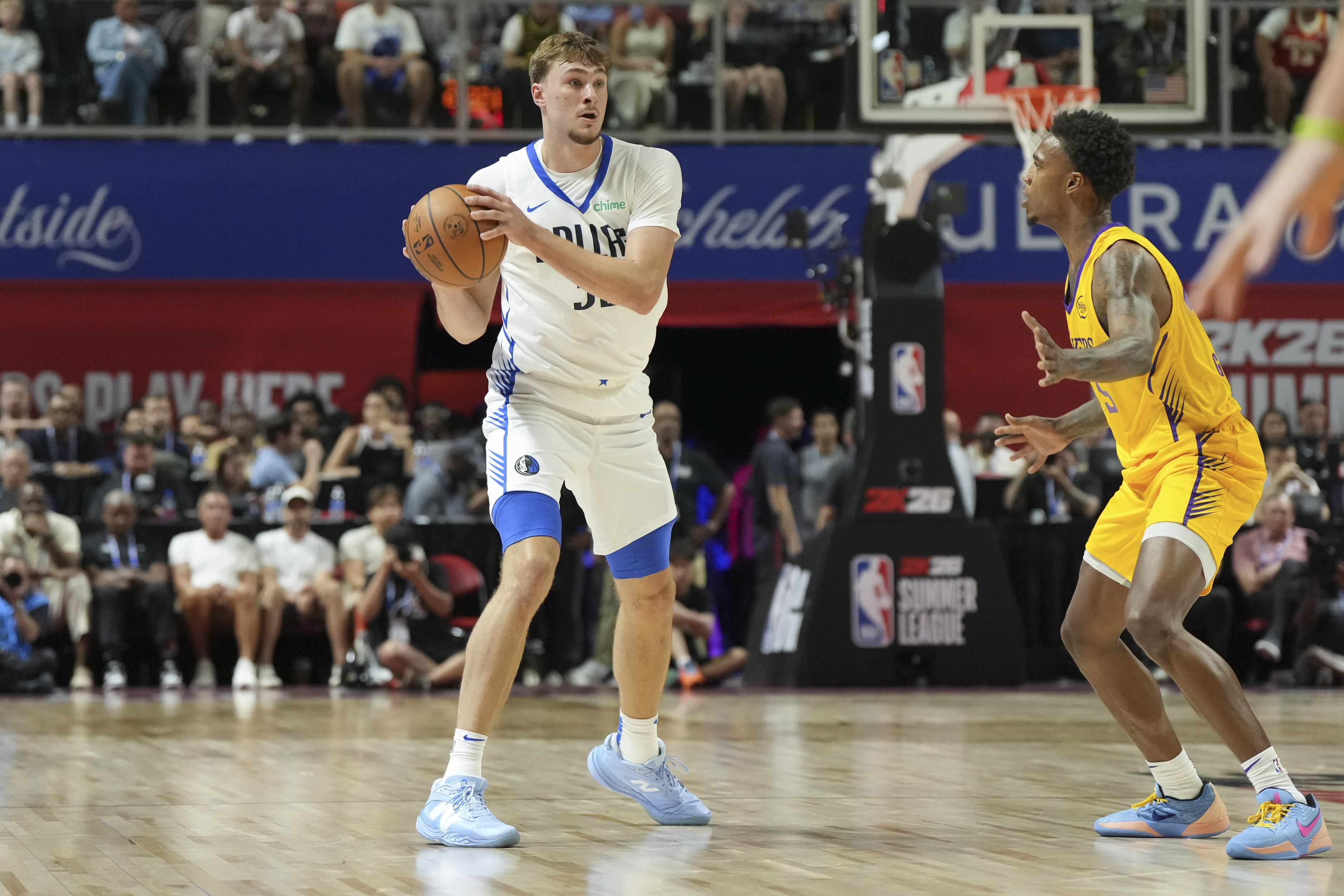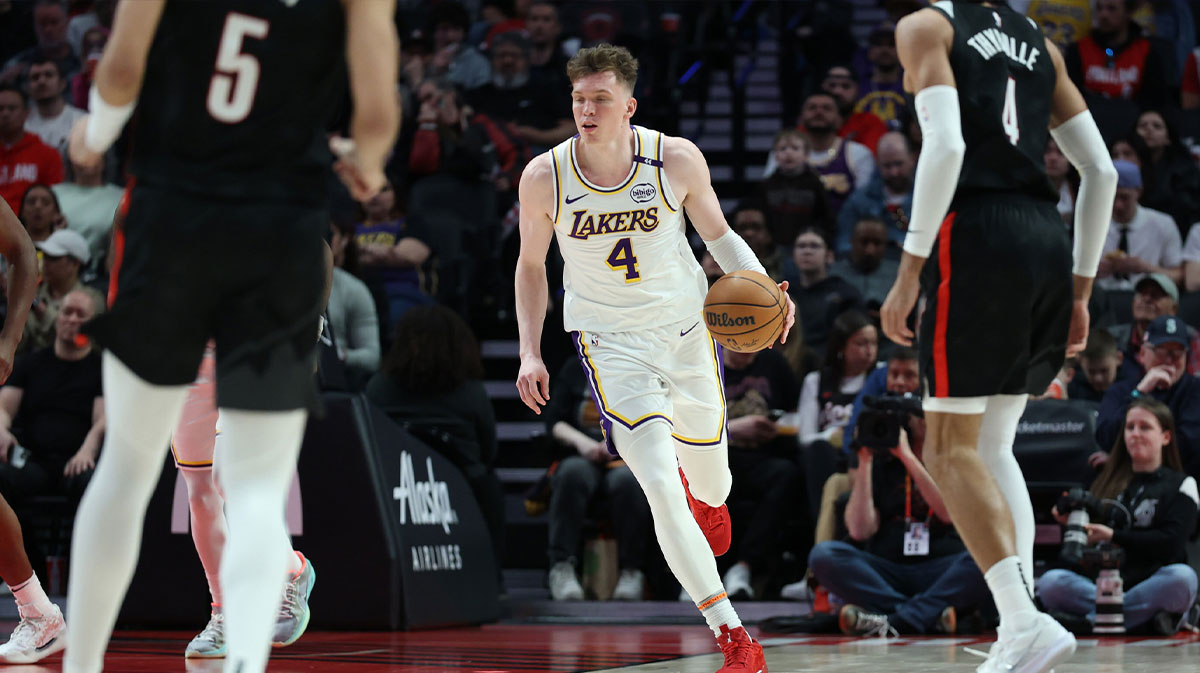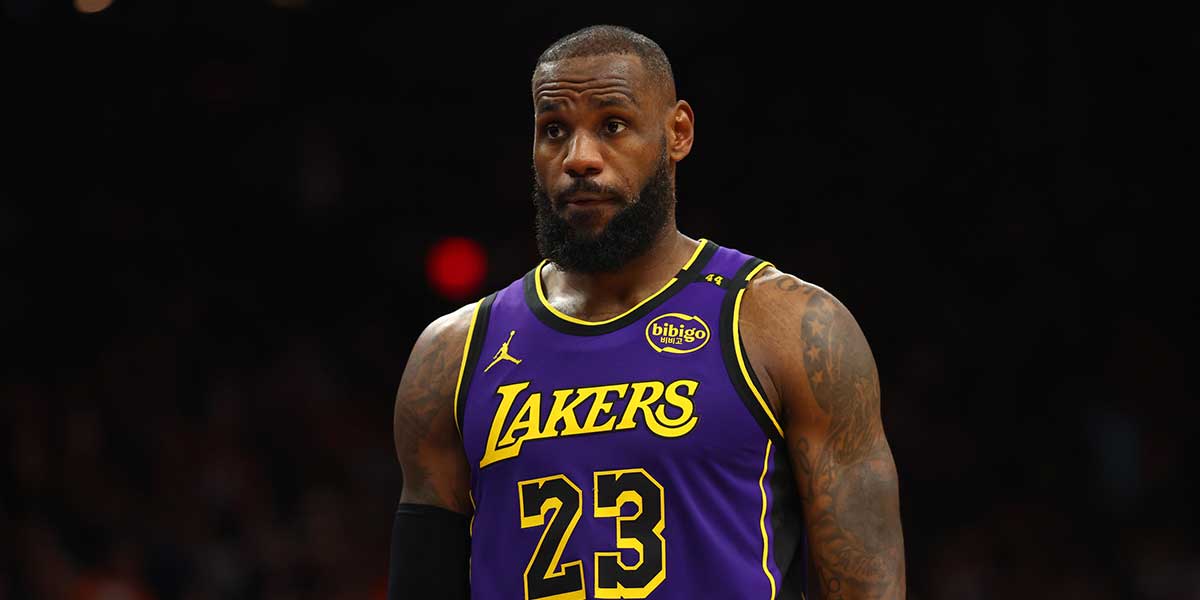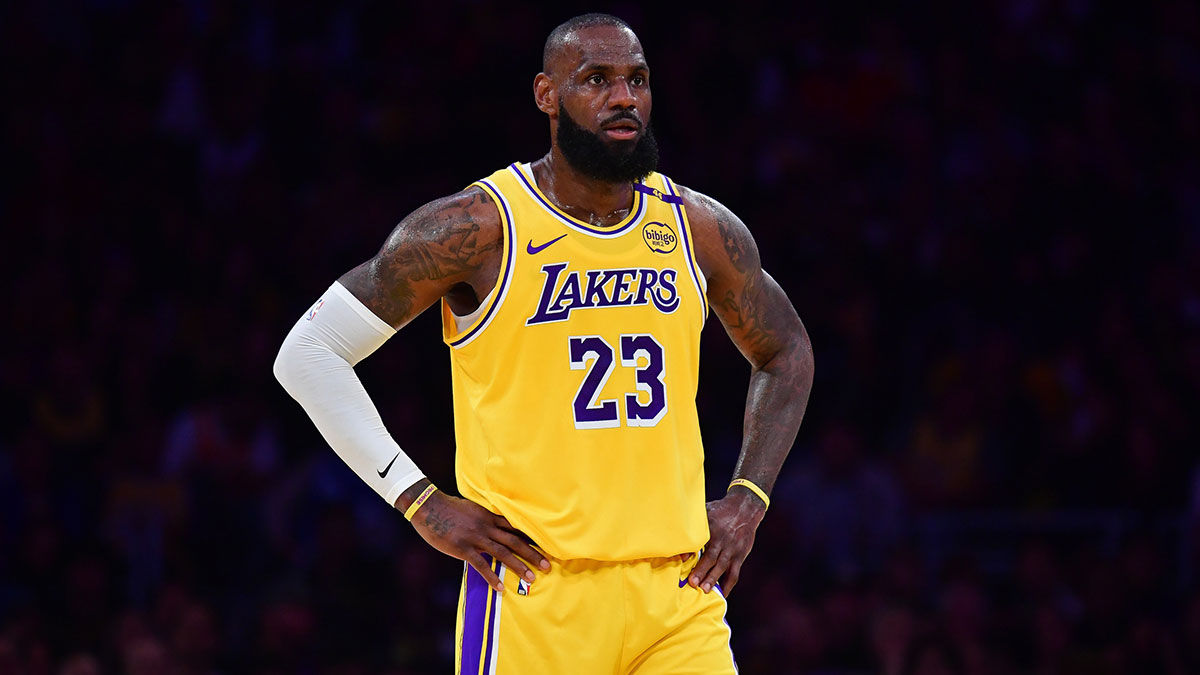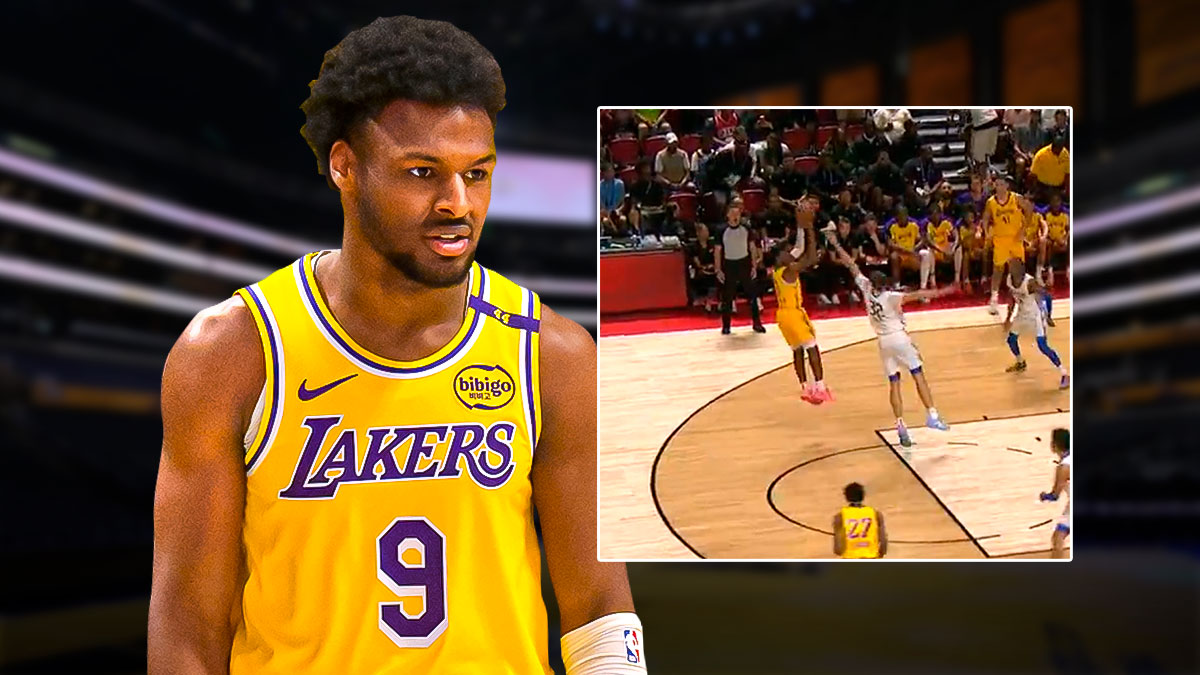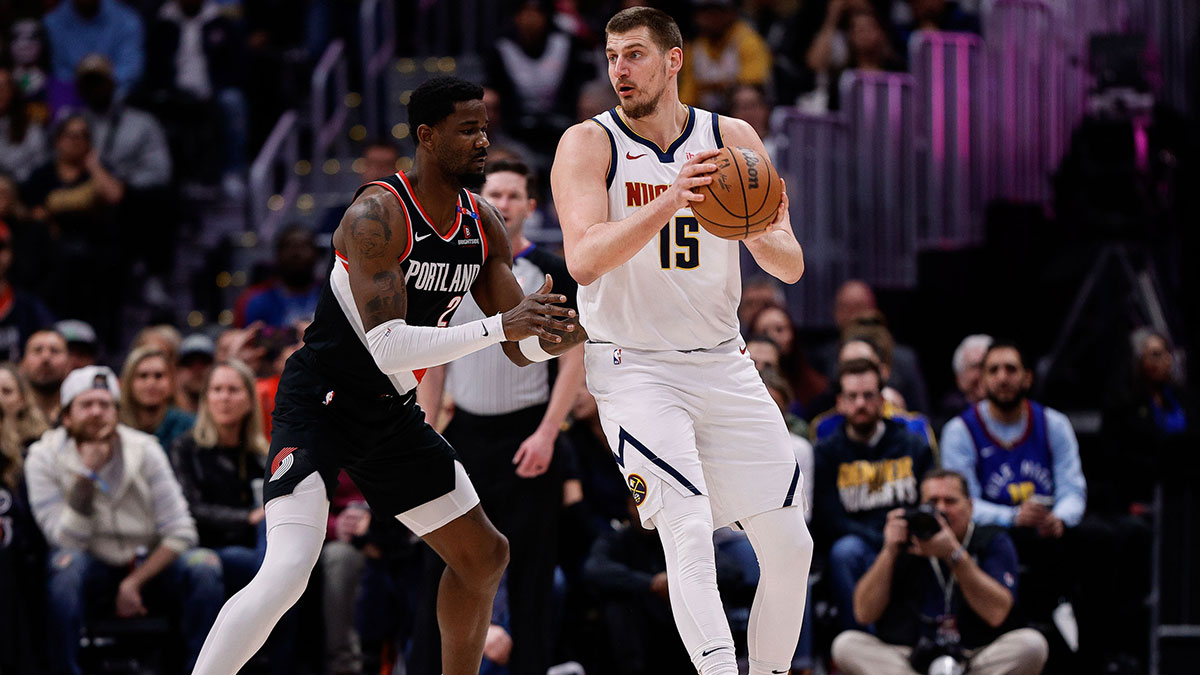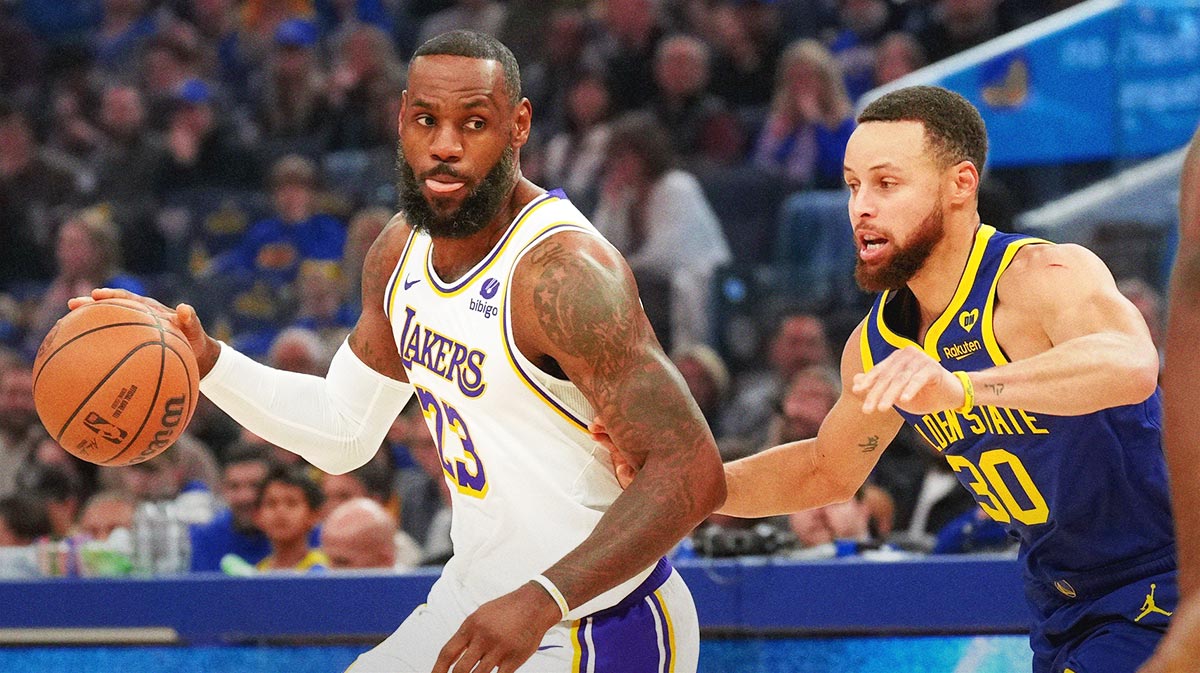The benefit of 20/20 hindsight makes it easy to forget that decisions by NBA front offices are never made in a vacuum.
There are always circumstances beyond a player's presence or absence that help decide his future with an incumbent team, an important portion of which executives rarely make privy to the public. However, much of the justification behind team-building decisions is readily apparent to even casual league followers, like that which prompted the Los Angeles Lakers to trade D'Angelo Russell to the Brooklyn Nets in June 2017, after the former No. 2 overall pick had finished an underwhelming sophomore season.
The reasons for giving up on Russell so early in his career were obvious. The Lakers sent the remaining three years and approximately $48 million of Timofey Mozgov's contract to Brooklyn in the deal — not taking back any long-term money in the process — and set themselves up to potentially clear double-max cap space the following summer.
Brook Lopez was a major upgrade at center for Los Angeles, while getting the opportunity to add a cost-controlled young player to the roster. Brooklyn's late first-round pick also played into the team's ambitions of making a major splash in free agency a year later.
There was also the fact that the Lakers, setting their sights on Lonzo Ball with the No.2 overall pick, grew increasingly disenchanted with Russell during his time wearing purple and gold. It's a reality from which Magic Johnson hardly deflected while discussing the trade after the draft.
“D'Angelo is an excellent player,” he said during Ball's introductory press conference, per ESPN's Baxter Holmes. “He has the talent to be an All-Star. We want to thank him for what he did for us. But what I needed was a leader. I needed somebody also that can make the other players better and also [somebody] that players want to play with.”
Nearly two years later, Russell is an All-Star, leading the upstart Nets to their first playoff appearance since 2013. Meanwhile, the Lakers are poised to miss the postseason during LeBron James' first year playing in Southern California. Ball followed up a dispiriting rookie campaign with a season marked more by injury than on-court development, while Lopez — who Los Angeles could have brought back on the cheap in free agency last summer even after signing James to a max contract — is an integral piece on both ends of the floor for the league-leading Milwaukee Bucks.
Still, none of the above means the Lakers lost this trade. If creating the cap space necessary to ultimately sign James meant parting with Russell, Los Angeles would undoubtedly agree to the swap again if it had the chance…and so would every other team in basketball. It's also remiss to ignore that the trade netted the Lakers Kyle Kuzma, taken with the No. 27 pick in the draft, which had previously belonged to Brooklyn.
What really pokes holes in the widespread criticism recently being directed at Johnson and general manger Rob Pelinka is the likelihood that Russell would have never developed into the player he is today if he'd continued his career in Los Angeles.
Russell's usage rate with Brooklyn this season is 32.7, fourth-highest in the league, and the 23-year-old guard derives a sky-high 49.1 percent of his offense from pick-and-roll play. Needless to say, the realized version of Russell would have been a terrible fit next to James, as the Lakers' much-discussed intention of easing his playmaking burden, predictably, never came to fruition.
Moreover, it's no coincidence that Russell's mid-season rise to stardom came after the November injury of Caris LeVert. It continued at an accelerated rate once Spencer Dinwiddie was also sidelined.
Ball, of course, was more comfortable in 2018-19 playing without James. He also hasn't come close to living up to the “can't-miss” status he held during the pre-draft process. Regardless, back in June of 2017, Los Angeles effectively choosing Ball as its franchise point guard over Russell was an easy call — both from the perspectives of each player's perceived ceiling and his potential ability to play next to a ball-dominant superstar.
Lakers management, to be clear, deserves denunciation for the series of roster moves that contributed to the team's demise this season. Signing Rajon Rondo, Lance Stephenson and Michael Beasley with the aim of moving James off the ball was always foolish, especially with options like Lopez and other effective low-usage role players still available.
Furthermore, trading Ivica Zubac to the Los Angeles Clippers at the deadline for Mike Muscala to address the team's lack of shooting and accompanying floor space is a decision that will haunt Johnson and Pelinka for years to come. Letting Julius Randle walk to the New Orleans Pelicans last summer in free agency on a one-plus-one contract with the same annual salary Rondo received is damning, too.
There's also something to be said about talent evaluation here. What did Kenny Atkinson and Sean Marks see in Russell that allowed them to effectively mine his potential that Luke Walton, Johnson, and Pelinka missed?
Trading D'Angelo Russell by itself, even acknowledging subsequent events that transpired, is actually one of the more prudent roster decisions the Lakers have made since Johnson and Pelinka took the reins of the franchise in February 2017. Unfortunately, taking that into account won't make it any easier for Los Angeles and its fans to watch D-Lo get buckets for the Nets.

